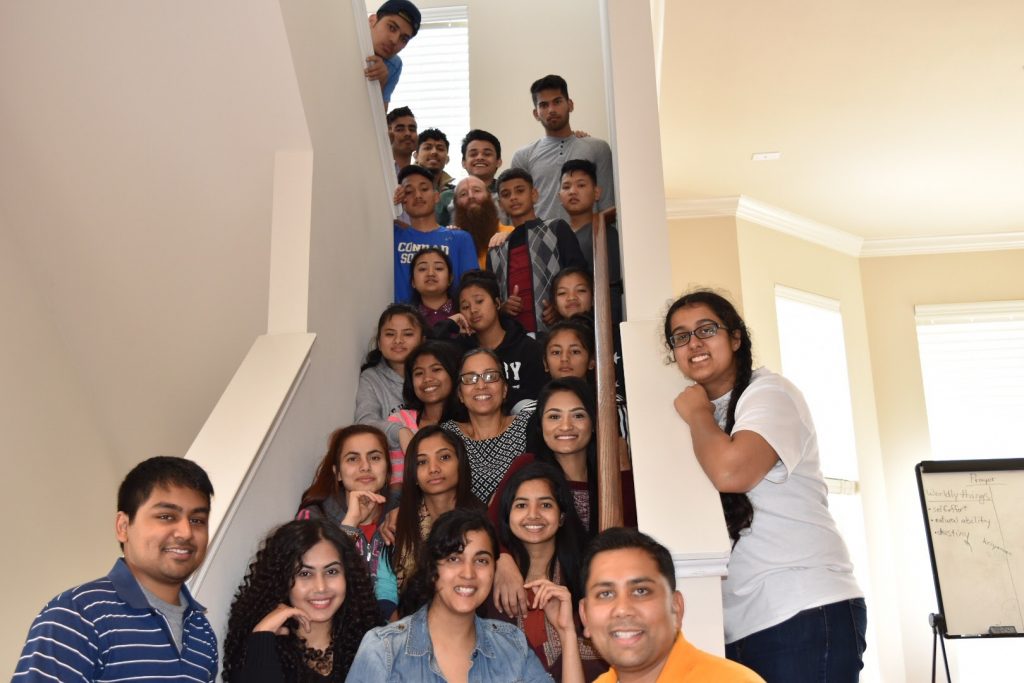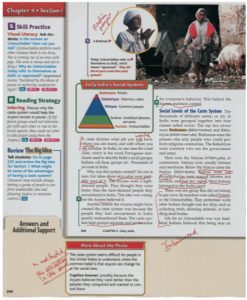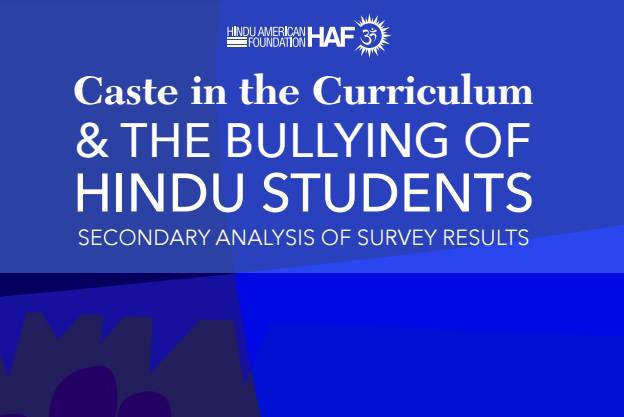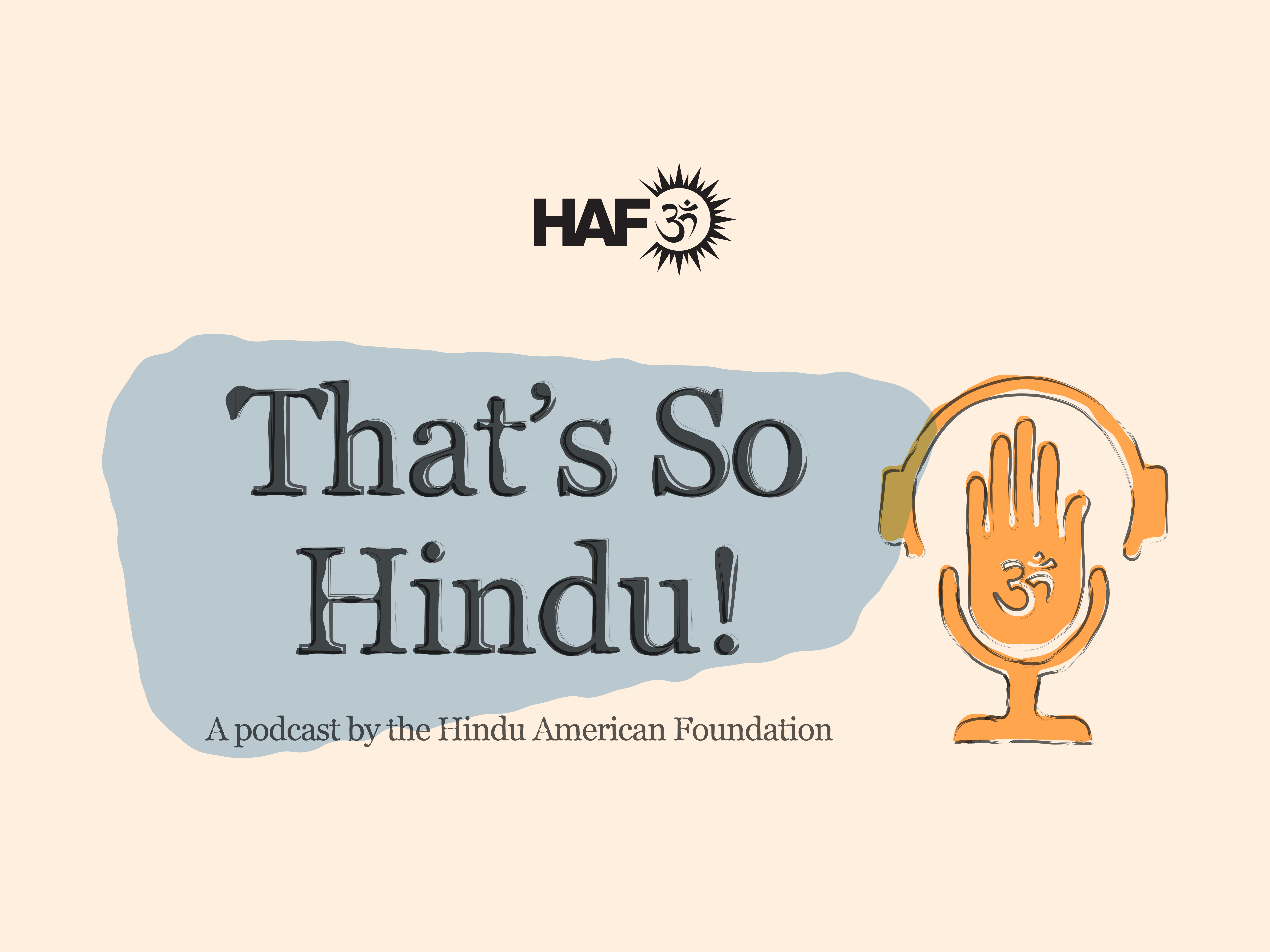
The two-day Bhutanese Youth College Preparatory Retreat, held on March 13, 2017, focused on personal and professional development for students between the ages of 14 and 20. The Nepalese-Bhutanese refugee community immigrated to Dallas in many groups; some families came from refugee camps many years ago, while others arrived in the past year.
A common problem the youth face once they arrive here is assimilation into the American professional and social environments. Through this retreat, we provided a safe space for the kids to plan for their future, strengthen their religious understanding, and better navigate their social environments. The retreat concluded with a discussion on anti-bullying presented by Hindu American Foundation.
Each day began with a discussion led by Swami Nikhilanand. Topics ranged from making dharmic choices in daily life to the role of Hinduism in overcoming hardships. The discussion led students through a journey of self discovery and gave them a platform to ask pressing questions that affect them daily.
Through the interactive platform Swamiji was able to relate to the students, who realized the importance of their opinions. Students were also able to ask culture specific questions related to religion that specifically affected them. Conversation about the sattvic and tamasic choices we make daily, helped students gain a better understanding of how to weave religion into their daily lives. An early icebreaker allowed the students and counselors to anonymously ask questions and highlight strengths for others by writing on plates tied to the back of other students. The students then answered the questions as they sat in a circle, giving everyone an opportunity to discuss their ambitions and best qualities.
Other activities during the day included a time management workshop that was hosted by Garima Singh, a graduate student at Southern Methodist University.
The session focused on maximizing the value of time by emphasizing the impact of efficient usage of time on one’s quality of life and ability to accomplish goals. As most of the students were of high school age, the value of spending time on college and scholarship applications was one of the key focuses of the talk.
Many students conveyed an interest in certain professional fields: Medicine, Research, and Finance (among others). For these fields, we invited Dr. Arun Badi, Dr. Shashank Sirsi, and Sanjay Gulati.
Dr. Badi spoke about the path to becoming a medical doctor in this country. He motivated the students, suggesting that their arduous backgrounds gave them the strength to succeed in environments such as medical school and residency despite the workload required to be in the medical profession. He also offered his guidance as well as volunteer positions to the students. Dr. Sirsi described his research in drug delivery methods and taught the students about the importance of reaching out to professionals at an early age, to better understand the variety of professional paths available to them.
Mr. Gulati spoke about his experience in Finance as a trader, and offered a helping hand to anyone who wanted to better position themselves to break into Finance. Many students were not as knowledgeable of the business track as they were of the STEM professions, and reacted positively to Sanjay’s insights. All three speakers were passionate and offered a personal level of support that we can only hope to replicate with future speakers.
We were also lucky to have Krishna Parmar, the Associate Director of Membership from Hindu American Foundation, join us to speak on anti-bullying and share local and national HAF events. After summarizing the results from Classroom Subjected: Bullying and Bias Against Hindu Students in American Schools, many students were able to relate to the findings which led to an open discussion on how to tackle certain situations when being bullied or witnessing someone else being bullied. This discussion was extremely important to the students as it gave them an opportunity to discuss what is happening in their backyard. Apart from the anti-bullying report, students were very keen on hearing more about HAF’s internship program as well as the 2017 Advocacy Forum held in Washington DC in June. A few students plan to apply for the internship program as well as become active in future Dallas HAF events.
The workshop ended with an interactive activity that gave the students a easy organizable time table that they could customize and use to create a more efficient schedule. Students gained a big-picture perspective on how they use their time, and realized opportunities to create more time for personal activities, while still allowing them to focus on their work.
Over the course of the retreat, the students grew more comfortable with each other and their counselors. They led the charge to add activities to the event, playing sports outside, hosting a competitive game of Antakshari, and dancing to the latest Bollywood music. The students, many of whom are already close friends, told the counselors that they felt the friendships strengthen and expressed a desire to be more involved in planning future events. As the retreat came to a close, the last activity asked everyone to sit in a circle and share what activity impacted each of us the most. Laughter and fond remembrance punctuated the hushed silence as each of us relived the memories the others shared.
As Ganga Adhakari, a masters student at UTD, said, “The impact of the retreat is truly going to be felt when we succeed with empowering these youths, so that they can lead their community.”
This is a guest post by Ridhima Chadha and Eshan Kejriwal.








































